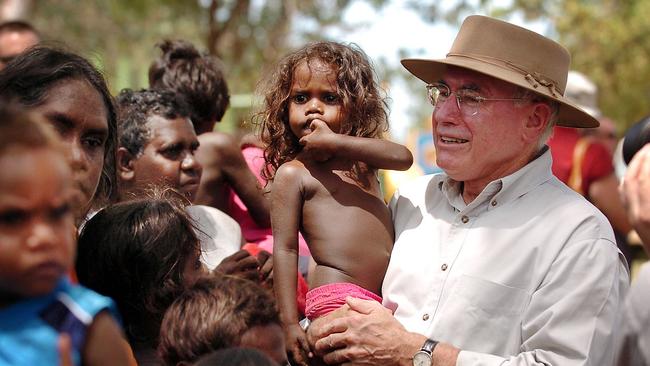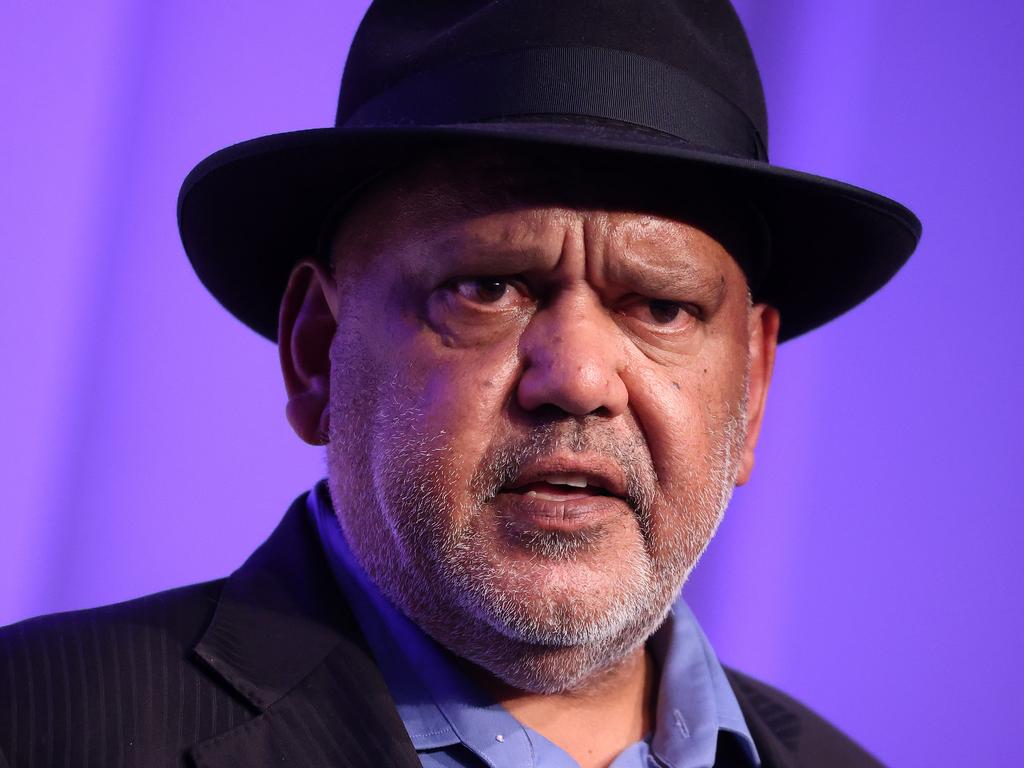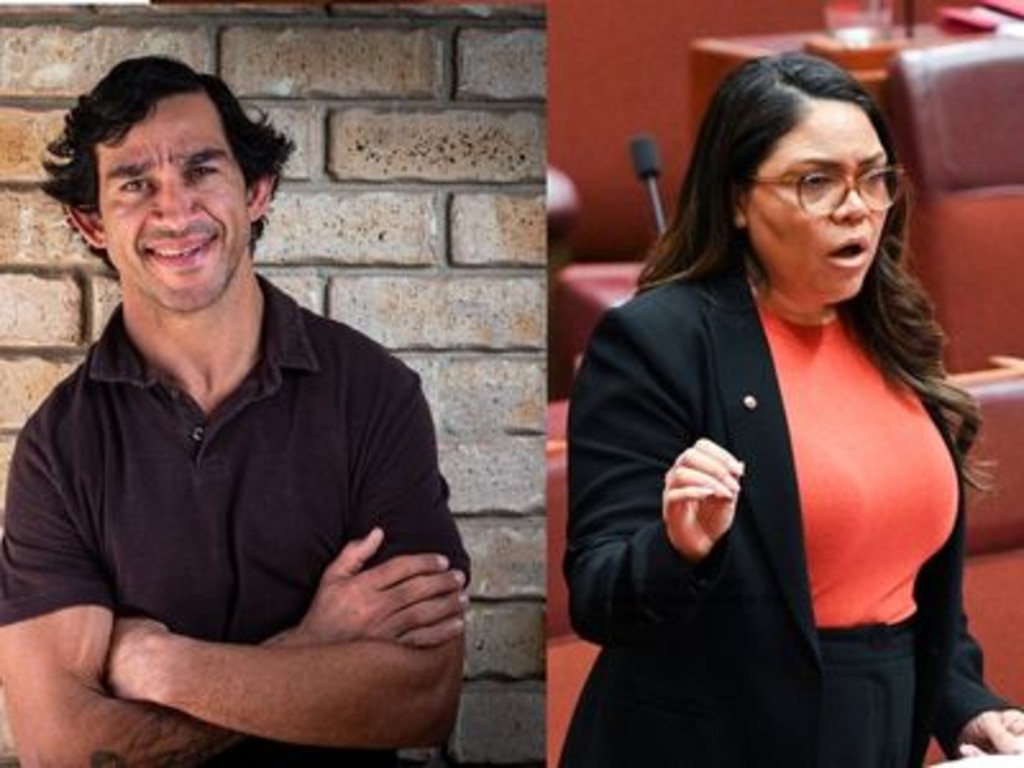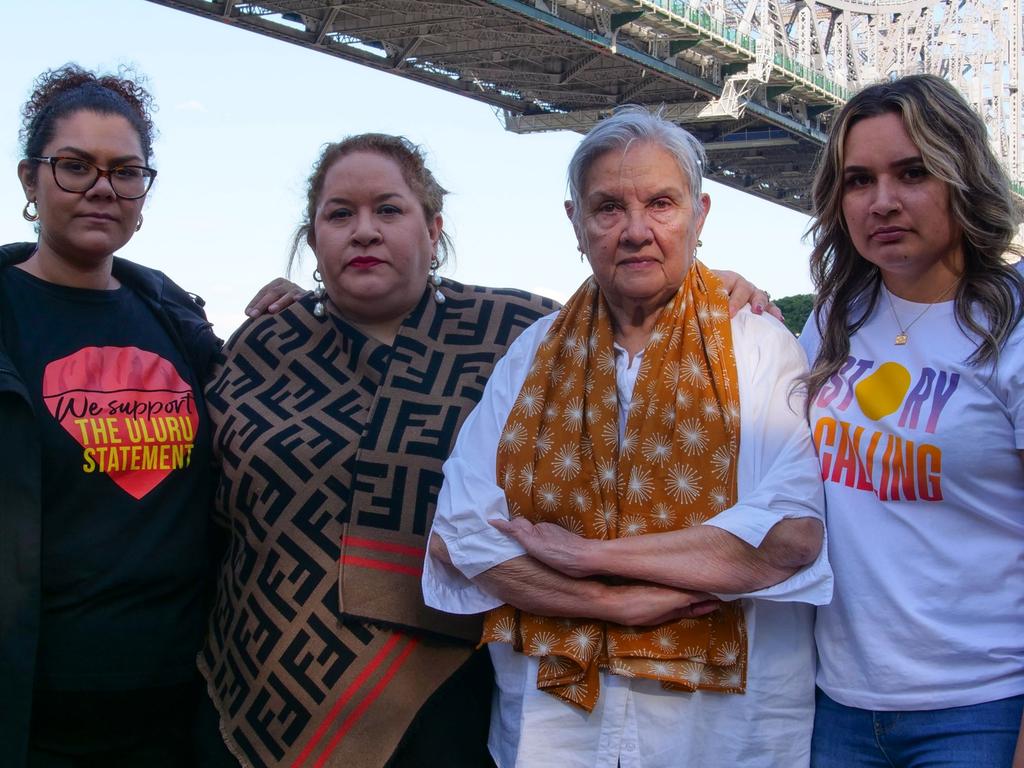‘Why are we doing this to ourselves?’ John Howard sees Indigenous voice to parliament as cockpit of conflict

“I think it will go down significantly. That’s my sense,” he adds in a lengthy interview with The Australian days earlier. The reason is simple. Howard says campaigners for a voice have not explained to Australians how this new race-based body will lead to better health, education and social outcomes for Indigenous people.
Howard, in his heyday, had a knack for understanding a large swath of the country. When was the last time a politician won government from opposition and went on to win the next election, let alone three, let alone four elections? Critics will rightly point out that, as years go by, Howard moves further away from younger generations.
Still, Howard’s quintessential common sense may hold intergenerational appeal. Even now, nearly 16 years after he lost office, Howard’s ability to take the national temperature may have something to do with an enduring divide in this country between a small but loud group of cultural dietitians on the one hand, and a much larger group of Australians who don’t want to be lectured to by a group of elites who have fashioned themselves as moral guardians force-feeding ordinary folk their preferred cultural diet.
Howard coined this phrase – “cultural dietitian” – before taking office more than three decades ago. As prime minister, Howard encountered the divide and he says the voice reveals a similar, perhaps deeper, fault line.
The nation’s most famous Liberal is frustrated and disappointed with the proposal to insert a race-based body into the Constitution, and with the quality of the debate.
“I am affronted that there’s such deceit and there’s such an unwillingness to roll up your sleeves and explain what’s involved,” he says.
“Shouldn’t we just be sitting down talking to each other? Not about the voice, not about reparations, not about treaties, but just talking about how to lift up Aboriginal people, and put them in the mainstream of the community, finding out ways of doing it. It’s going to be hard. It’s going to take a long time. It’s going to be less successful than we would like. But why are we doing this to ourselves?”
He predicts the voice will “create a new cockpit of conflict about how to help Indigenous people”.
“I don’t think the voice is going to produce anything other than regular stand-offs between what the voice is asking for and what the government of the day is willing to do with a fair dollop of constitutional adventurism thrown into the mix. That’s what I think will happen.”
Howard worries that a close referendum result will, potentially, lead to a “fragile situation” for the nation.
“I’ve long held the view that if you’re going to make big changes to the Constitution, you shouldn’t attempt to do them until you have a large majority.”
Howard puts forward a few basic propositions: “The first is that most Australians are frustrated, really angry, that so much money has been spent, but there is such little progress. Everyone wants better outcomes, but why isn’t it happening? It’s not happening because we don’t have good government in this area, and over a period of 30 years, we have gone from one phase to the next, one approach to the other.
“Well, how will the voice solve that? That’s not clear to me. The voice is no panacea.”
It’s not hard to imagine a new bureaucracy of elected officials breaking into factions, disagreeing among themselves and focusing on issues that make not a jot of difference to the lives of Indigenous people living in squalor and dysfunction.
Howard is scathing of Anthony Albanese’s voice campaign, and he describes Indigenous Minister Linda Burney’s advocacy as “ineffectual”.
“The Prime Minister has not commanded the heights of this debate in any meaningful way except to utter banal generalisations,” he said.
Yet Howard doubts that the PM will delay the referendum, set down for the last quarter of the year.

Howard laments that years of insiders talking among themselves about the voice have not involved the general public.
It’s been an incredibly elitist approach, he says, with no serious debates. Even now, Burney has said in recent days she won’t debate her Liberal counterpart, Jacinta Nampijinpa Price.
And no wonder. The Prime Minister himself has got into all kinds of strife last week. Speaking with 2GB’s Ben Fordham, Albanese denied that the voice was the precursor to a treaty and reparations. He waved them off as red herrings that have no place in the debate about a voice.
Albanese’s denial is entirely at odds with his own public support for implementing the Uluru Statement “in full” – voice first, then treaty negotiations and Makarrata Commission with reparations being integral to those negotiations. Enshrinement of the voice in the Constitution is critical to negotiating a treaty and reparations from a position of power.
These issues should be explained, says Howard, adding that the reason that treaty and reparations are being hidden from public scrutiny is because the government understand that they can only secure a Yes vote for the voice by subterfuge.
“I think it’s very clumsy, with a dash of deception,” Howard says.
Howard’s view about a treaty and reparations is clear-cut: both are misconceived, legally, historically and socially.
“The idea that a sovereign country makes a treaty with part of itself is just preposterous. It is constitutionally repugnant.
“Treaties are made between sovereign states. They’re not made between the sovereign state and part of the sovereign state. The very notion of this treaty is antagonistic to national sovereignty.”
Howard is equally scathing about reparations: “I’m totally opposed to (reparations). You have to understand that in the 17th, 18th century, colonisation of the land mass of Australia was next to inevitable.
“And I do hold the view that the luckiest thing that happened to this country was being colonised by the British. Not that they were perfect by any means, but they were infinitely more successful and beneficent colonisers than other European countries.
“And I’m probably expressing the views of a lot of ordinary Australians in asking: why are we doing this to ourselves?”
The “why” question won’t go away, says Howard.
“I am surprised at how poor has been the attempt to appeal to people through rational argument. At no stage have the Yes campaigners explained how the voice is going to fill the gaps in service delivery. I mean, how is the voice going to bring about a different outcome in a place like the Northern Territory?”
Recalling his government’s battle to intervene to protect young Indigenous children in the NT, Howard is concerned that if the referendum succeeds, the voice could prevent the commonwealth intervening even when poor governance in the NT requires it.
“Fifteen years ago, we intervened because the Little Children Are Sacred Report revealed the appalling level of child abuse. The Northern Territory government had to be hounded into commissioning that report, and then having been delivered, they had to be hounded, in vain, to act on it,” he said.
The Commonwealth, he says, was forced to implement the Northern Territory intervention in 2007 because the NT government refused to act.
“That indicates to me that what you need is a good old-fashioned dose of proper governance in areas like health and police and education. I don’t think the Northern Territory is capable of doing that.
“The implication (of voice advocates) is that if you do this (bring in the voice), all the problems will be solved. Now all the problems are never going to be solved, but a lot of them would be solved and a lot more quickly if we just had good, competent government. But we haven’t had that in the Northern Territory.”
Howard is unapologetic in believing that joining the mainstream of our society is the ticket to success for the vast majority of Australians. And the cultural dietitians who think otherwise are part of an industry that has overseen more than 30 years of policy failures for Indigenous people.
In 2004, the Howard government ended the 14-year experiment with self-government by dismantling the Aboriginal and Torres Strait Islander Commission after it was mired in controversies about fraud, misappropriation of funds, rape allegations, pub brawls – and the core purpose of the representative body.
Labor agreed that the ATSIC needed to be abolished.
Announcing that decision in April of that year, Howard said he believed that ATSIC had “become too preoccupied with … symbolic issues and too little concern with delivering real outcomes for Indigenous people …. That is not to say there is not room for debate on symbolic issues. They are important … But we are all surely agreed that our greatest obligation is to give Indigenous people a greater opportunity to share in the wealth and success and the bounty of this country, and plainly the arrangements that have existed in the past do not deliver that.”
Howard remains frustrated that it has become taboo to encourage Indigenous people to become part of the mainstream of the Australian community.
“I think is a terrible mistake. I think that’s one of the bad turns we took. We went down completely the wrong path.”
The keen sports fan regards former rugby league player Johnathan Thurston as “one of the more impressive people that the ‘yes’ side has recruited.”
“He’s a highly intelligent, successful sportsman. He’s part of the mainstream of our community. Equally, nobody doubts his aboriginality and neither they should.”
Asked to describe our culture, Howard doesn’t hesitate: “We are profoundly and absolutely part of Western civilisation. Part of our culture is the Aboriginal culture, but the mainstream culture of Australia is not very Aboriginal.” He describes the attempts to black out western culture as a form of “minority fundamentalism”.
He points to contributions to our civilisation from far and wide, from our British heritage, Europe too, the Enlightenment, the Judea-Christian tradition, our migrants too. And, of course, from Aboriginal & Torres Strait Island people too.
That said, in 2007 Howard proposed a form of constitutional recognition, after his earlier proposal failed at the 1999 republic referendum. Given his election loss in November 2007, it didn’t happen.
Howard says he takes exception “to this attempt by a number of people, including Noel Pearson, to conflate my support for simple recognition in the preamble of the fact that First Australians were Aboriginal and Torres Strait Islanders with the voice proposal”.
“What they are implying is what they’re now putting up is a logical extension of what I originally proposed in 1999.”
Howard has no issue with recognition of this kind. But his opposition to a race-based constitutional voice has led him to updating his most recent book, A Sense of Balance, released earlier this month, to accommodate a new section on the voice.
He lays out his core belief that “we must remain one people, living in one nation under one law which applies with equal force to all of us. If any proposal to amend the Constitution goes against this principle, it will not have my support”.
There is, he says, no better authority on this than his old political sparring partner, former Labor prime minister Bob Hawke, who on Australia Day 1988, the bicentennial of British settlement, said: “In Australia, there is no hierarchy of descent; there must be no privilege of origin.”
It doesn’t require Howard’s political nous to observe what’s gone wrong with the ‘yes’ campaign. If you’re selling a terrific product, you will shout every big and small detail from the rooftops. If you have a lousy product you resort to fibs and tricks.
The former prime minister has seen his fair share of consequential referendums. In the lead-up to the republic one, there was a serious, transparent and mostly respectful debate about that fundamental constitutional change, he says.
“I always conceded there was a very strong argument in favour of a republic, that it is a bit odd for one person to be the legal head of state in more than one country.”
But the staunch monarchist says he prefers the proven benefits of the current system.
He was 12 when debates about banning the Communist Party embroiled the nation. It was 1951. Most of the media threw their support behind the “yes” case.
“There was serious debate on that,” says Howard. “Incidentally it started with about 75 per cent support and the referendum went down.”
“I think of the ’67 referendum. That was a no-brainer. The proposition was overwhelmingly fair and it was simple.”
The proposal – “that Aboriginals are to be counted in reckoning the population’ – received a resounding “yes” vote with a significant majority in all six states and an overall majority of almost 91 per cent.
Howard campaigned on the day of the referendum.
“I remember that day, I handed out ‘yes’ campaign material at the Harcourt Public School near Campsie, alongside Doug Sutherland, who later became (Labor) lord mayor of Sydney.”
The proposal for a race-based constitutional body couldn’t be more different. It is not fair, says Howard, nor is it simple. Senior lawyers, including former High Court judges, are in profound disagreement about the legal consequences of creating a new Chapter that will establish an untested race-based body that will have the constitutional power to advise parliament, and most importantly, executive government on any “matters relating to Aboriginal and Torres Strait Islander peoples.”
If lawyers can’t agree now about the reach and powers of new constitutional body, how can we be certain about the consequences of entrenching an indigenous body in the nation’s founding document?
Though engaged about the potential for what he calls judicial adventurism, Howard returns, again, to the “why” question.
He says there is a deep strain of Celtic scepticism in the Australian psyche that may push back against pressure from above, unless the case is made.
“The more you get told, ‘You’ve got to do this because it’s the right thing to do and the good thing to do’, the more people will say: ‘Hang on, tell me why.’”
“We are not being told why. That is the greatest weakness in the (Yes) case.”
Many institutions across the country – from universities and large parts of the media to companies and sporting clubs – are siding with the “yes” campaign, with no explanation beyond banalities. The backlash from ordinary folk saw Big W pull their in-store public address endorsements of the voice.
Howard compares that side to the republic referendum where, again, “every major media outlet was yelling – yelling is the right word – at the Australian people to vote ‘yes.”
It didn’t help.
In familiar style, Howard furrows his eyebrows, leans back in his chair and smiles wryly, as he predicts what many Australians will make of the Prime Minister’s messages on the voice.
“What’s he up to? What does this really mean? There’s more to this than meets the eye.”
“Isn’t that Australia?” he says.







“Why are we doing this to ourselves?” As he celebrates his 84th birthday on Wednesday, John Winston Howard shows no signs of caring less about important national debates. Australia’s second-longest serving prime minister predicts that the voice referendum will fail.